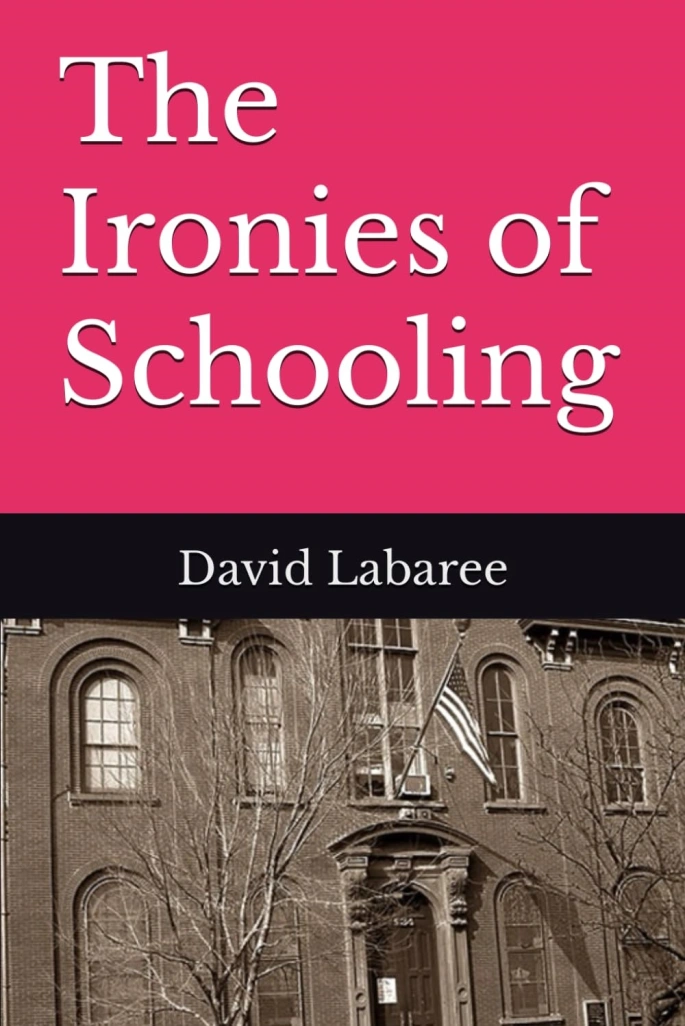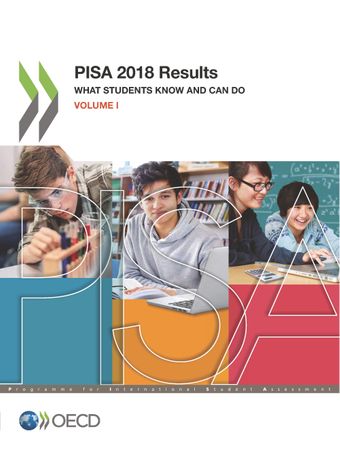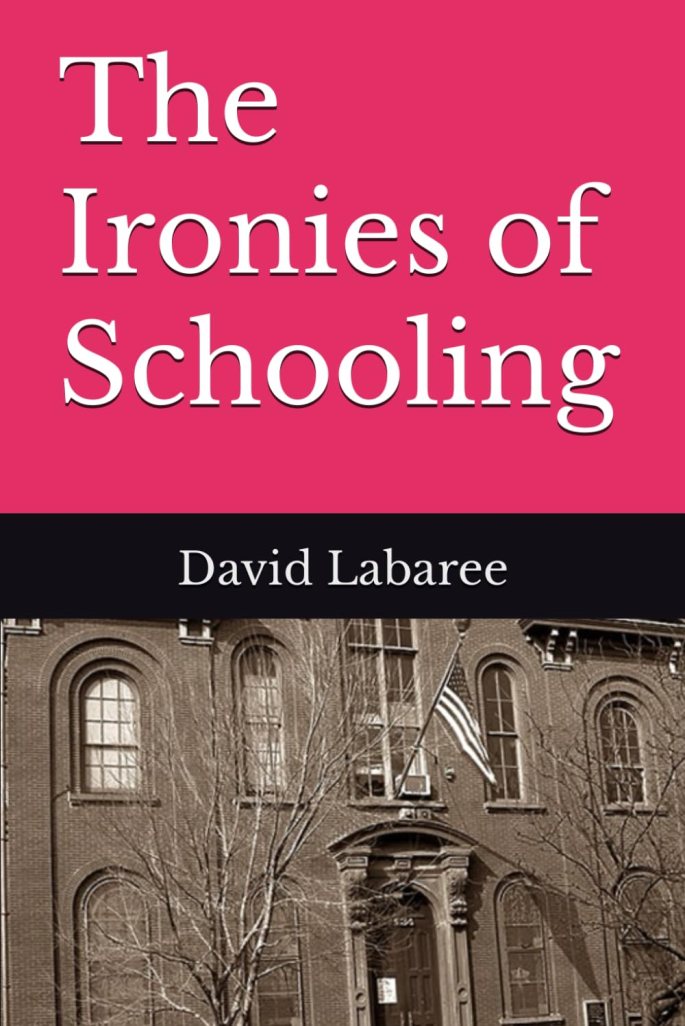This post is a paper I published Educational Theory in 2008. Here’s a link to the original. In is included as a chapter in my new book, The Ironies of Schooling. In this essay, I examine the paradox of educationalization in the American context. I argue that, like most modern Western societies, the United States has displayed a … Continue reading The Winning Ways of a Losing Strategy: Educationalizing Social Problems in the US
Category: Education policy
School Syndrome
This post is a 2012 piece I published Journal of Curriculum Studies. Here’s a link to a PDF of the original. This piece is now a chapter in my new book, The Ironies of Schooling. Here's an overview of the story I’m telling: The USA is suffering from a school syndrome, which arises from Americans’ insistence … Continue reading School Syndrome
Let’s Measure What No One Teaches
This post is a piece I published in Teachers College Record in 2014. Here’s a link to the original. It is now a chapter in my new book, The Ironies of Schooling. It’s an analysis of two major players in the world movement for educational accountability: OECD’s Program for International Student Assessment (PISA), and the US No Child … Continue reading Let’s Measure What No One Teaches
The Ironies of Schooling
With this post, I am announcing the publication of my new book, The Ironies of Schooling. It's available as both an e-book and paperback. As I did with my last book, Being a Scholar, I published this one myself using Kindle Direct Publishing. One result is that the book appeared for sale one hour after … Continue reading The Ironies of Schooling
The Chronic Failure of Curriculum Reform
This post is about an issue I’ve wrestled with for years, namely why reforming schools in the U.S. is so difficult. I eventually wrote a book on the subject, Someone Has to Fail: The Zero-Sum Game of Public Schooling, which was published in 2010. But you may not need to read it if you look at this … Continue reading The Chronic Failure of Curriculum Reform
From Citizens to Consumers: Evolution of Reform Rhetoric and Consumer Practice in the U.S.
This post is the text of a lecture I delivered in 2019 in Japan at Kyoto University and Keio University. It draws on the second chapter of my book, Someone Has to Fail (which has been translated into Japanese), and at the end I try to bring the analysis up to the present. The advantage … Continue reading From Citizens to Consumers: Evolution of Reform Rhetoric and Consumer Practice in the U.S.
Romance, Realism, and the Future of Ed Schools
This post is a brief essay I wrote in 2003 for The Navigator, a publication of the Center for Education Policy Analysis as the USC Rossier School of Education. Romance, Realism. and the Future of Ed Schools David F. Labaree American education schools have long had a romance with the rhetoric of pedagogical progressivism, and … Continue reading Romance, Realism, and the Future of Ed Schools
Course Syllabus — School, What Is It Good For?
This post is the syllabus for a class I taught for several years at Stanford Graduate School of Education: “School — What Is It Good For?” The course's aim is to provide a guided exploration of alternative theories of the social functions that schools serve, especially in American society. Along the way it tries to … Continue reading Course Syllabus — School, What Is It Good For?
School Syndrome: Understanding the USA’s Magical Belief that Schooling Can Somehow Improve Society, Promote Access, and Preserve Advantage
This post is a 2012 piece I published Journal of Curriculum Studies, which draws on my book Someone Has to Fail. Here’s a link to a PDF of the original. An overview of the story I’m telling: The USA is suffering from a school syndrome, which arises from Americans’ insistence on having things both ways through the magical medium … Continue reading School Syndrome: Understanding the USA’s Magical Belief that Schooling Can Somehow Improve Society, Promote Access, and Preserve Advantage
Let’s Measure What No One Teaches
This post is a piece I published in Teachers College Record in 2014. Here’s a link to the original. It’s an analysis of two major players in the world movement for educational accountability: OECD’s Program for International Student Assessment (PISA), and the US No Child Left Behind law. The core argument is this: Both PISA and NCLB, I argue, … Continue reading Let’s Measure What No One Teaches









